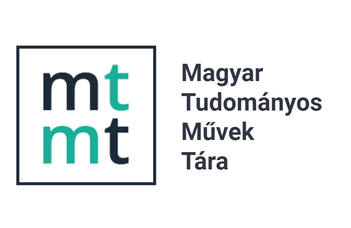Prohibition of the use of evidence in the case of unlawfully obtained evidence?
DOI:
https://doi.org/10.46941/2023.e2.1Keywords:
nemo tenetur, European Court of Justice, Charter of Fundamental Rights of the European Union, European evidence lawAbstract
The question of whether evidence that was obtained unlawfully can be admitted as evidence is discussed in any criminal justice system. This paper examines the solutions that can be found in EU secondary and primary law and in the case-law of the Court of Justice of the European Union. It reveals that different area of EU law use different approaches, which can be explained by the underlying rationales.
References
Böse, M. (2021) ‘Judicial Protection in International and EU Law’, in Böse, M., Bröcker, M., Schneider, A. (eds.) Judicial Protection in Transnational Criminal Proceedings. Cham: Springer, pp. 395-436; https://doi.org/10.1007/978-3-030-55796-6_11.
Böse, M. (2014a) ‘Die Europäische Ermittlungsanordnung – Beweistransfer nach neuen Regeln?’ Zeitschrift für Internationale Strafrechtsdogmatik, 9(4), pp. 152-164.
Böse, M. (2014b) ‘Fundamental Rights of the EU Charter’, in Böse, M., Meyer, F. Schneider, A. (eds.) Conflicts of Jurisdiction in Criminal Matters in the European Union, Volume 2: Rights, Principles and Model Rules. Baden-Baden: Nomos, pp. 107-168; https://doi.org/10.5771/9783845255538_107.
Burchard, C. (2021) ‘Art. 37 – Evidence’, in Herrnfeld, H., Brodowski, D., Burchard, C. (eds.) European Public Prosecutor’s Office. 1st ed. London: Bloomsbury, pp. 345-352; https://doi.org/10.5771/9783845290768-345.
Caianiello, M., Lasagni, G. (2022) ‘Comparative remarks’, in Contissa, G., Lasagni, G., Caianiello, M., Sartor, G. (eds.) Effective Protection of the Rights of the Accused in the EU Directives. Leiden: Brill, pp. 229-258; https://doi.org/10.1163/9789004513396_015.
Corell, C., Sidhu, K. (2012) ‘Das Recht auf Rechtsbeistand nach dem europäischen Fahrplan zur Stärkung der Verfahrensrechte in Strafverfahren’, Strafverteidiger, 2012(4), pp. 246-250.
Eckstein, K. (2013) Ermittlungen zu Lasten Dritter. Tübingen: Mohr Siebeck.
Giuffrida, F., Ligeti, K. (eds.) (2019) Admissibility of OLAF final reports as evidence in criminal proceedings [Online]. Available at: http://orbilu.uni.lu/bitstream/10993/40141/1/ADCRIM_final_report.pdf (Accessed: 21 December 2023).
Gless, S., Richter, T. (eds.) (2019) Do exclusionary rules ensure a fair trial? A comparative perspective on evidentiary rules. Cham: Springer; https://doi.org/10.1007/978-3-030-12520-2.
Scholten, M., Simonato, M. (2017) ‘EU Report’ in Luchtman, M., Vervaele, J. (eds.) Investigatory powers and procedural safeguards: Improving OLAF’s legislative framework through a comparison with other EU law enforcement authorities (ECN/ESMA/ECB) [Online] pp. 9-56. Available at https://dspace.library.uu.nl/bitstream/handle/1874/352061/Report_Investigatory_powers_and_procedural_safeguards_Utrecht_University_1_.pdf?sequence=2&isAllowed=y (Accessed: 21 December 2023).
Schneider, A. (2021) Strafprozessuale Ermittlungsmaßnahmen und Zeugnisverweigerungsrechte. Tübingen: Mohr Siebeck; https://doi.org/10.1628/978-3-16-158911-9.
Thaman, S. (ed.) (2013) Exclusionary rules in comparative law. Cham: Springer; https://doi.org/10.1007/978-94-007-5348-8.
Turner, J. I., Weigend, T. (2019) ‘The purposes and functions of exclusionary rules: a comparative overview’ in Gless, S., Richter, T. (eds.) Do exclusionary rules ensure a fair trial? A comparative perspective on evidentiary rules. Cham: Springer, pp. 255-282; https://doi.org/10.1007/978-3-030-12520-2_8.





